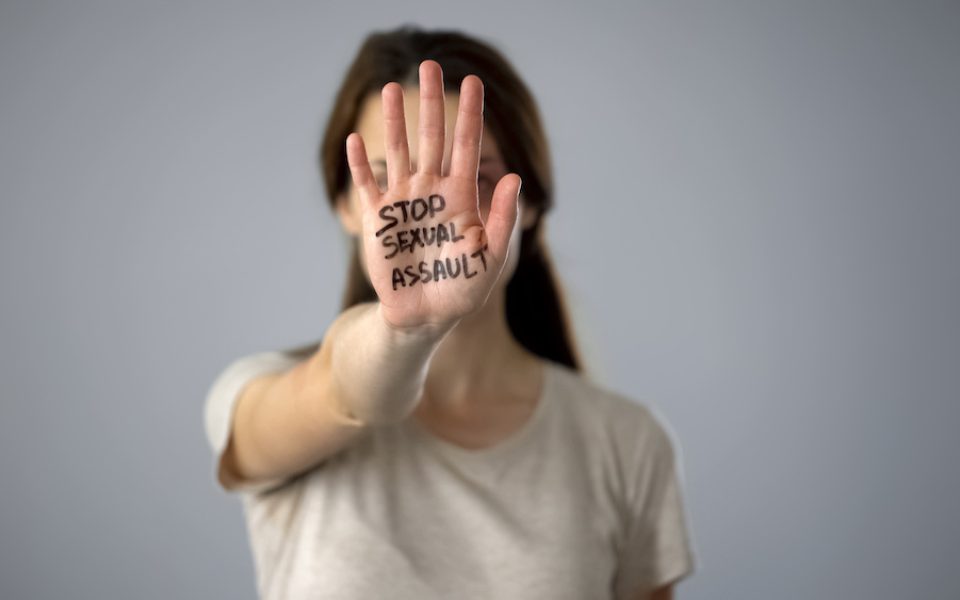With a wider conversation about sexual assault in the general culture, local universities are working to provide prevention tactics for students, staff and faculty.
One in five college women experience sexual assault. That’s based on a 2016 study conducted by the Bureau of Justice. During a time when more people are having conversations about sexual assault and harassment in society — due in large part to movements like #MeToo and #TimesUp — local colleges and universities are working to raise awareness of sexual assault.
At UNCG, a new online sexual assault-prevention course kicks off this month. In past years, the school used a broader, widely-distributed online course but this year marks the introduction of a customized course built by UNCG faculty for UNCG students.
The course, named Student Well-Being: It Matters, is mandatory for all new students, both graduate and undergraduate, and aims to shed light on sexual assault.
“It’s a really good way to reach the general population to show what sexual assault is,” said Kim Sexton-Lewter, the senior assistant director for wellness at the university. “People think it’s just rape, but it’s so many other things as well. It helps students be more conscious in its prevalence and how to prevent it.”
The course opens on July 15 and requires new students to take it during the summer, before they start school in the fall. It’s short; it takes only two hours and is split into two parts, but covers definitions of sexual assault, personal and community rights and responsibilities and information related to bystander intervention. It also points students to additional resources on campus. It was created by faculty at UNCG to fit the specific needs of the university.
“UNCG is a unique campus,” said Jeffrey Milroy, an assistant professor at UNCG and one of the faculty members who designed the new course. “We’re not drinking at the same rate as other institutions, which can reduce risk for other negative consequences. Tailgating is not a part of our school as much. That’s why we decided to move toward a much more customized approach.”
Still, all students under 25 at UNCG are required to take an alcohol-awareness course that deals with how to monitor drinking. Topics like mental health and sleep wellness are also covered in the course.
Like UNCG, many other universities in the area, including Wake Forest University and High Point University, require students, particularly freshman, to take mandatory online courses to learn about sexual assault. Wake Forest began providing a course through EverFi, a national company that specializes in online courses and trainings for schools and workplaces, in 2016.
“It provides a base,” said Tanya Jachimiak, Wake Forest’s Title IX director. “There’s a common language like what is effective consent and what should a bystander do?”
Wake Forest also requires additional training for their athletes, as mandated by the NCAA, and works with student leaders in fraternities and sororities.
“We know that peer education is incredibly important,” she said. “We have fraternities and sororities who have wanted to become more involved at an organizational level so they receive additional training.”
Peer-led training is a key part in sexual-assault prevention, according to Michelle Carroll, the associate director of external programming at End Rape on Campus. The nonprofit was founded by Annie E. Clark and Andrea Pino, two survivors who were highlighted in the 2015 documentary The Hunting Ground, which exposed sexual assaults on college campuses including UNC-Chapel Hill.
“Prevention has to address multiple layers,” she said. “It has to address individual biases, prevention at the relationship level between individuals, the community level and the cultural level.”
Carroll said that while having online courses is fine, it’s not enough to create lasting change.
“It’s not enough at all,” she said. “How much brain power do you need to put in to complete it? These are difficult concepts. They’re difficult because we don’t talk about sex education or sexual violence until students go to college.”
One of the things that Carroll said that all universities should be doing is conducting campus climate surveys that gauge how much students know about sexual assault and whether they know what the school’s resources are.
Emily Scott, the Title IX coordinator for Greensboro College, said that in addition to an online program, the institution conducts a survey every two years.
“Our campus has become more aware of this topic,” she said. “The data [from the survey] showed a jump in what students know about the sexual misconduct policy, particularly from 2015 to 2017. We saw a big jump in students who were aware that we had a policy and had received training about the topic.
“The more you discuss this on campus, and certainly the more society in general discusses this topic, it lends itself to an increase in reports,” she said.
And while it may seem counterintuitive, an increase in reports of sexual assault can be a good thing.
“Because more people recognize it and there are more resources, there’s an increase in reports,” said Sexton-Lewter, the senior assistant director for wellness at UNCG. “People know where to get help.”
To learn more about campus sexual assault and for resources, visit End Rape on Campus’s website here.
Join the First Amendment Society, a membership that goes directly to funding TCB‘s newsroom.
We believe that reporting can save the world.
The TCB First Amendment Society recognizes the vital role of a free, unfettered press with a bundling of local experiences designed to build community, and unique engagements with our newsroom that will help you understand, and shape, local journalism’s critical role in uplifting the people in our cities.
All revenue goes directly into the newsroom as reporters’ salaries and freelance commissions.


Leave a Reply